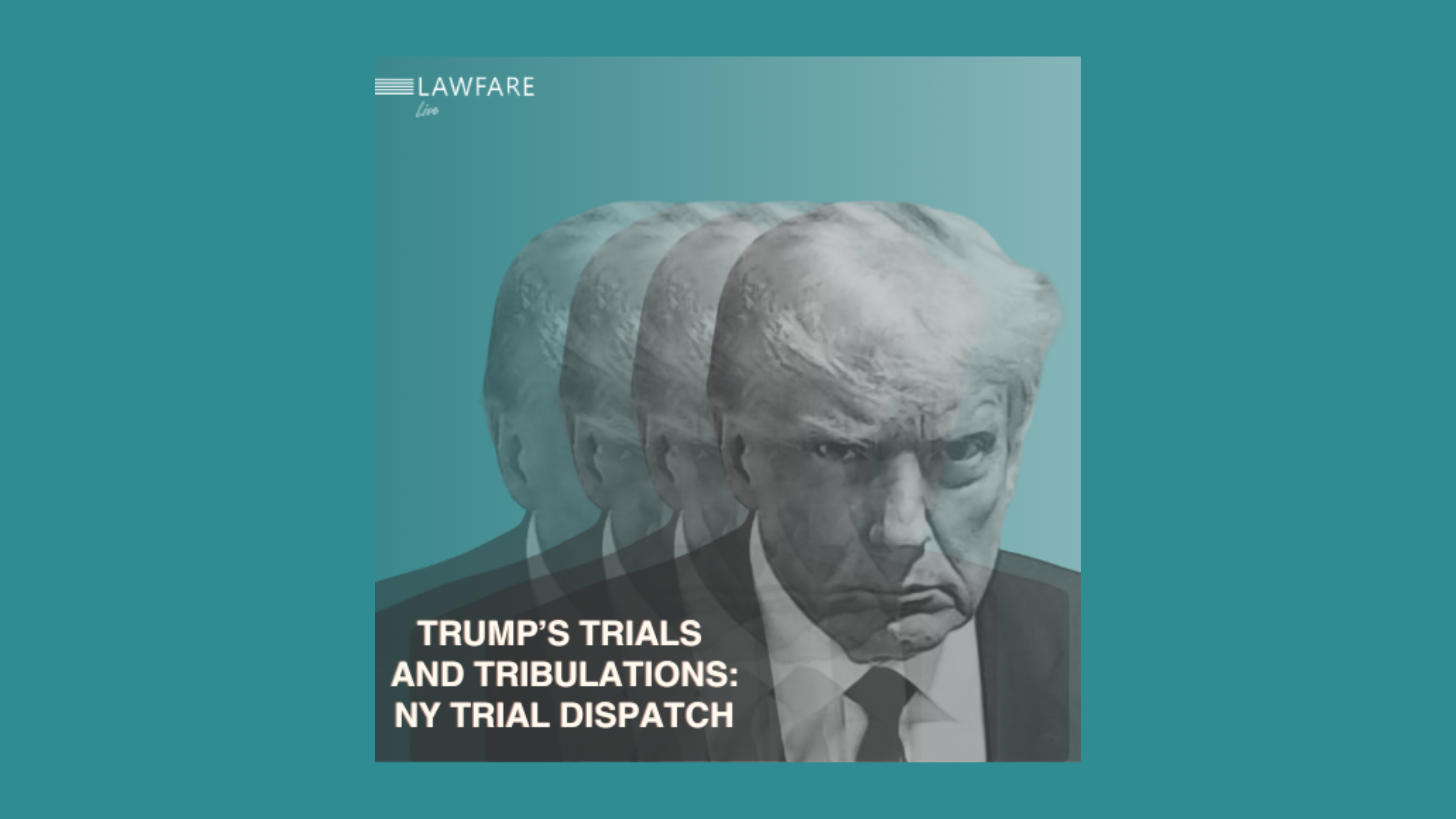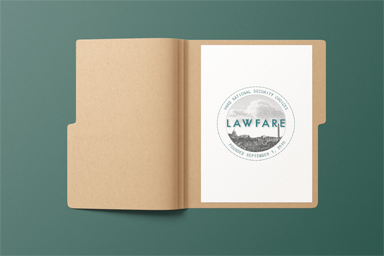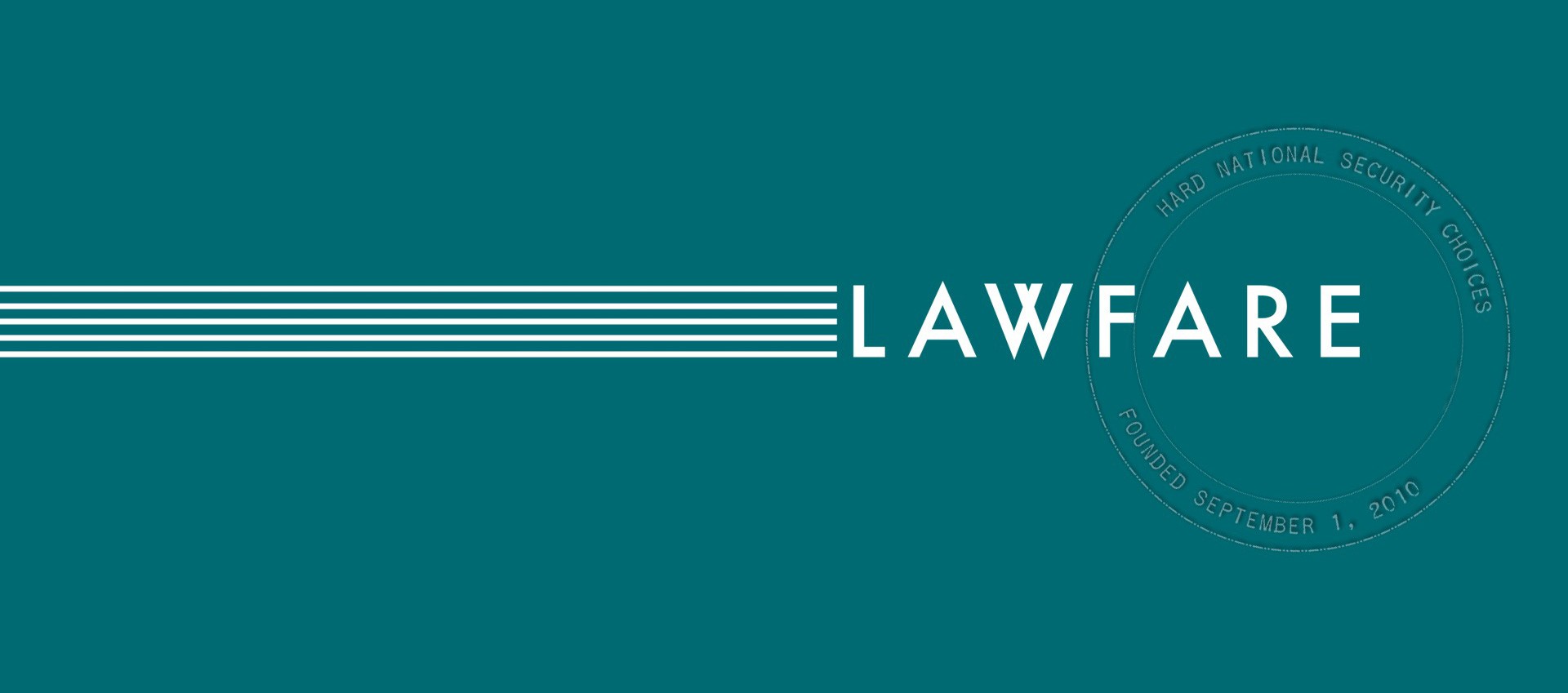-

Information Warfare and Its Casualties
A review of Peter Pomertantsev, “How to Win an Information War: The Propagandist Who Outwitted Hitler” (PublicAffairs, 2024) -

Chatter: Climate Migration with Gaia Vince
What is climate migration? -

Lawfare Daily: Law Enforcement Hacking as a Tool Against Transnational Cyber Crime
Discussing law enforcement efforts to "hack the hackers." -

ChinaTalk: EMERGENCY POD: Biden's Electric Curtain
-

Software Liability and Insurance
Insurers can bring unique evidence and legal strategies to software liability cases if the regime creates a path for subrogation. -

Trump Trials & Tribulations: N.Y. Trial Dispatch, Week Four
Find Lawfare's post-court livestreams and podcasts here from May 13 - May 16. -

Framework Interoperability: A New Hope for Global Digital Governance
Governance of AI, human-machine interface, immersive, and quantum technologies will require balancing global integration and regulatory autonomy. -

Lawfare Daily: The U.S. International Cyberspace and Digital Policy Strategy with Adam Segal
What is in the new cyber strategy? -

ChinaTalk: MITRE on S&T Strategy
-

Stormy Daniels Steps Down
In which we also hear from Rebecca Manochio, Madeleine Westerhout, more records custodian witnesses, and a denied mistrial motion. -

Hamas Cannot Be Fought Like al-Qaeda
Grouping the two terrorist organizations together obscures some important distinctions. -

State Department Issues Arms Transfer Assurance Report
The department finds insufficient evidence of IHL violations to cut off U.S. weapons to partners actively engaged in conflict. -

The Week That Was: All of Lawfare in One Post
Your weekly summary of everything on the site. -

A Zuck Takes on Meta
A professor seeks to turn Silicon Valley’s legal shield into a sword. -

D.C. Circuit Upholds Bannon Conviction
The unanimous appeals court panel found that none of Bannon’s challenges to his conviction had “merit.” -

Microsoft Makes Security The New Black
The latest edition of the Seriously Risky Business cybersecurity newsletter, now on Lawfare. -

Has TikTok Implemented Project Texas?
Takeaways from a recent on-the-record briefing with the company’s representatives on the progress of Project Texas. -

Lawfare Daily: David Pozen on ‘The Constitution of the War on Drugs’
Discussing how the relationship between the drug war and the Constitution -

Rational Security: The “B- B-Roll” Edition
This week, Alan Rozenshtein, Quinta Jurecic, and Scott Anderson were joined by Lawfare’s Fellow in Technology Policy and Law Eugenia Lostri. -

Should Democratic Governments Use Deepfakes?
Governments should weigh the risks of diminishing their credibility when deciding when, if ever, to use deepfakes.
More Articles
-

The Week That Was
Your weekly summary of everything on the site. -

Questions Remain About Leadership Failures in the Aftermath of Oct. 7
The prime minister’s responsibility for intelligence oversight raises questions about whether that authority was properly exercised. -

Google's Cyber Disruption Unit Kicks Its First Goal
The latest edition of the Seriously Risky Business cybersecurity newsletter, now on Lawfare.

_nasjonal_samling_(ns-_norwegian_nazi_party)_ss-skijegerbataljon_alt_for_norge_den_norske_legion_nsuf_wehrmacht_1943_blend_svarthandleren_etc_hjemmefrontmuseet_rakkestad_local_ww2_museum_permanently_exhibit.jpeg?sfvrsn=a651dbde_5)















-1928c983-394b-444d-b1ec-f6590b7d9fee.jpeg?sfvrsn=78498e1e_7)
.jpeg?sfvrsn=773924a2_5)
